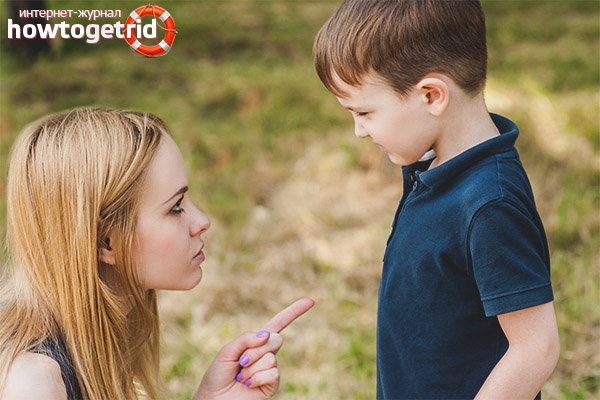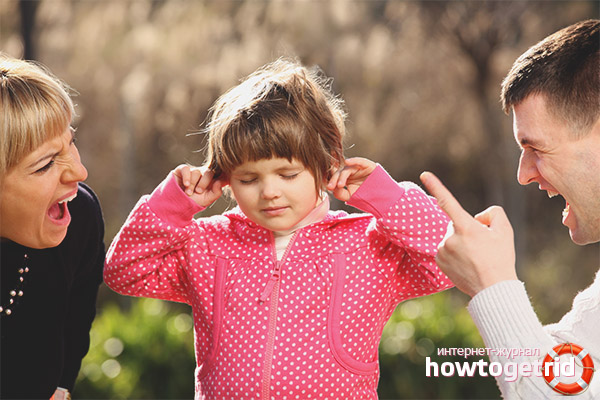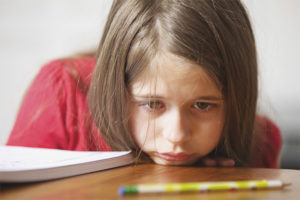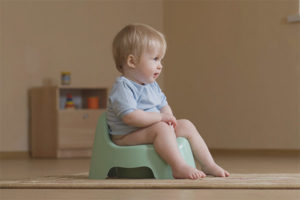The content of the article
Many young parents are proud that they have a small child - the most charming, beautiful and smart. Time goes on, the child grows up, he turns three years old, the educational process moves at full speed, and the question becomes relevant: do I need to apply any punishments for disobedience to my beloved child? If necessary, how exactly? If not, then what to use instead?
Psychologists say that children who have not been punished are much more friendly and much calmer than their peers. And, on the contrary, if the little one was constantly punished, then aggression, rudeness, hysteria are his companions for the rest of his life. He turns into a touchy evil type, closing himself inside and taking out anger and resentment for those who are weaker: small children, defenseless animals, is quite capable of offending a woman or an old sick person.
Punishment - what is it?
Parents apply punishment for toddlers and older children to show them that they shouldn’t act in such and such a way, for this you will get in trouble. Adults are changing the environment in which the child lives for the worse.
Suppose they say something like this - you’ll lose your walk, you won’t use a computer, you don’t go to the circus with your dad, you don’t get the usual chocolate in the morning, and so on. Each family has its own method. Punishment plays the role of a kind of motivator, the child learns to bear responsibility for committed bad or harmful acts.
But in many families, as well as children's groups, abuse and physical torture are used as a punishing factor - cuffs, cracks, children are put in a corner. And, as a rule, the child is usually afraid of the punishment itself, which appears in his mind as humiliation. In fact, he must be aware of the consequences of a perfect act, for which he was punished. Fear of censure, the desire to avoid punishment in every possible way pushes the man to a lie, he tries to lure, to make adults condemn not so much.
Causes of Poor Behavior
There are many reasons why children behave badly. But the main ones are these four:
- Often children do things only so that adults pay attention to them. Good behavior leaves parents indifferent, but as soon as something is ruined or broken, the whole family immediately begins to see a small family member. Let them react negatively, scold, but - notice!
- Lack of independence. The opposite also happens - a small favorite of the family is under the constant vigilant care of mother, father, grandfather, grandmother. And the child begins to behave badly in order to at least briefly feel freedom and feel his own independence.
- Loss of self-confidence in a child. If you treat him badly, constantly reproach and rebuke - he will lose the desire to be good. And if he constantly hears from his parents that he is bad and worthless, that is how it becomes.
- The desire to take revenge on mom and dad. Children are very keenly aware of injustice and often react with their bad behavior to the insult caused by loved ones. And there are sometimes enough reasons for her - undeserved parental insults, punishment for no reason, or parents tore their failures and bad mood on an innocent child.
How to tell a child that his actions are wrong?
- No need to ask what reason caused the baby to throw trash in his room. You just need to give a broom, a scoop, a rag, a bucket of water - let him clean the trash and wash the floor. It is necessary to prompt and explain the entire cleaning process, but do not do work instead.
- In no case should you intimidate the impending punishment. After all, it will be later (and the parent will forget about it), and the child will live in fear.
- It should be said that this act upset mom / dad.
- It must be strictly explained that in this family no one ever does.
- For some time, you can limit the baby in sweets, keep her away from the computer, skip watching a favorite cartoon together, postpone her trip to the amusement park. Or to say that the perfect act was so upset that no one will visit today.
- After all, put the child on a high chair - let him sit for a while and see that mom / dad is very upset.
What can not be done?
You can’t humiliate children by saying: I’ll tell you about your bad behavior to your classmates, neighbors, yard comrades, let them see and know how bad you are! This will lower self-esteem, cause trauma to the psyche, the child harbors anger and resentment on his parents, becomes stubborn.
- Do not give slaps, beat, scare with a belt. The kid will then become afraid of physical reprisal, but there will be no understanding why he is scolded.
- Do not say “go, stand in the corner”, do not shout and scare the monsters and different baboons. It is by no means recommended to promise "I will abandon you, I will give it to a bad uncle or an evil yard dog." These promises can damage the psyche of a son or daughter. And the baby will live with the thought "I am not liked by everyone and no one needs" - this is scary.
How to educate without punishing?

The question is certainly a difficult one. Is it possible to raise a small person without resorting to screams and without applying punishments? Specialists in the field of pedagogy and psychology assure - yes, it is possible. Parents only need to adhere to several basic principles that help in their upbringing.
- Fully recognize the identity of your child, respect his decisions, listen and accept desires, be attentive to needs, do not ignore his feelings. Otherwise, parents will receive a small rebel.
- Treat the baby with warmth and attention. He must constantly know that not only one, but nearby is always someone big, loving and constantly taking care of him.
- Respect the opinion. The little baby, first reaching for one of the many toys lying in front of him, is already making his first independent choice. There will be many more ahead of them - what to wear, to go or not to go for a walk, with whom to be friends, on which channel to watch your favorite cartoon, who to choose as friends. For some reason, most parents do not want to remember that their beloved child can solve many issues on their own. They forget about it and begin to do everything for the child, without asking his opinion. Which leads to a clash and battle of interests. It is imperative to trust the tastes, interests and customs of the child. Listen to them, trying to translate them into reality, no matter how difficult it was.
- Be patient. At a time when the two had matured the decision to have a baby, they took responsibility for the future of the little crumbs. This is a huge work and a hard way, but it can and should be walked with dignity. In the following life, there are many obstacles that must be overcome. Overcoming requires a lot of patience. You should develop this good habit in yourself and always remember about it. Indeed, an ordinary request, quietly and patiently repeated many times, allows you to achieve more and works much better than endless screams, arguments and persuasions. So, raising children, you must definitely learn to wait.
- Father and mother should tightly control themselves, set a personal example for the child.After all, it is known that education is primarily based on the fact that children copy and repeat the actions of their parents. And if there are obvious contradictions between what parents require from the pupil and what they allow themselves in practice, the child is disappointed, and parental authority falls in children's eyes.
- Encourage baby good behavior. Children's memory is arranged so that the gifts and presentations promised for diligent behavior, remember longer than the impending punishment for misconduct. Accordingly, there is more incentive to be obedient and good.
- It is unacceptable to constantly push morally, prohibit anything, state requests and requirements in the form of orders. It is necessary to strive to ensure that these requirements were not expressed by the parents firmly and categorically, but in a constructive and friendly manner, so that a good atmosphere reigned in family communication, and the child knew that they would always help him, supporting him in everything.
- Any punishment of the physical plan should be strictly prohibited in the family. Strength can only be defeated by force: such a disappointing conclusion will one day be made by the baby. What it will lead to when he becomes an adult is easy to guess.
- Calmly and consistently follow your instructions, always fulfill the promise - the main thing in education without punishment. The child must do everything that the parent requires. If you cancel the instruction or order for no reason visible to the child, the authority of the parents in children's eyes will irretrievably collapse.
- In no case should mom and dad forget what they promised. Whether it's a trip to the zoo, a visit to slot machines, or some petty trifling children's request. Otherwise, the children's universe, the basis of which is to fulfill the promise, will be destroyed.
It is very important that parents are emotionally stable. A mother or father, starting up from a haggard child, and starting to behave the same hysterically, makes a mistake. Of course, in such a situation, staying calm is not easy, but you need to try. The efforts will pay off in the future.
Can I use a scream?
In communication with the child, sometimes you need to use a raised tone - for example, with its help you can warn your baby about something important or about danger. And the child should know: parents are also people, sometimes they just need to splash out emotions.
Another question is if the cry in the relations between parents and children is normalized: with the help of this effective tool, the educational process is going on, and without it, no parental order has a single chance to be fulfilled. Here we can talk about pedagogical flaws. In this case, a cry appears if the parents are powerless to do anything, are tired of fighting children's disobedience, they are afraid that there are no other methods. Of course, this is an unacceptable and inadmissible method of education.
Why do parents scream?
Of course, parents begin to scream, threaten and punish children for a reason. Different mothers react differently to the behavior of their child. What affects the behavior of parents?
- Perfectionism. Often parents so much want to raise their offspring in accordance with their ideal, that they are annoyed by any “mistake” they make.
- The repetition of a model of behavior obtained in childhood. Dad and mom brought up by screaming, standing in a corner, threats and a belt carry this type of education to their children.
- There is no knowledge of another principle of behavior. Often young parents just simply do not know that it is possible to raise children somehow differently, without using swearing and slapping.
Cases when you can not scold and punish
- The child is physically unwell, sick, and does not feel well.
- The child experienced a strong shock - he received a deuce, had an argument with a friend. You should wait until negative emotions subside and disappear.
- If helps around the house.A child may do something completely different from what is required, but one must remember that the manifestation of negativity on the part of his parents will only push him away, and his desire to do something in his house will disappear.
Raise your children without screaming, no need to beat them. Try to give them more attention and talk with them.
Video: how to raise children without punishment











Submit